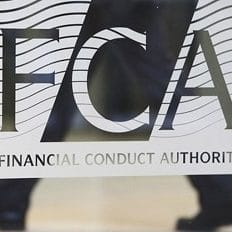
FCA: SRA follows its lead
The Solicitors Regulation Authority (SRA) is going ahead with plans to introduce the same system of fee caps for law firms handling financial services mis-selling claims as the Financial Conduct Authority (FCA) has already introduced for claims management companies (CMCs).
The only exception will be for complex or novel cases, where law firms will need to obtain approval from the SRA, on a case-by-case basis, to charge more than the maximum fee in its banding system.
The regulator consulted on the issue in April last year, after its board decided it should adopt the same banding system as the FCA introduced in March 2022 for CMCs.
At a meeting last month, the SRA board approved a recommendation to apply to the Legal Services Board (LSB) for approval of the new rules.
Under the FCA’s capping system, maximum fees range from £420 for claims worth less than £1,500 to £10,000 for claims worth over £50,000.
A paper before the board said some law firms which responded to the consultation disagreed with adopting the FCA system.
“Some pointed to the different standards, duties and expectations imposed on SRA-regulated firms compared to CMCs and of the consumer’s right to have fees assessed by the courts.”
Liverpool Law Society argued that the Financial Guidance and Claims Act 2018 did not require standardisation of approach.
“Other law firms were concerned that fee restrictions may make the bringing of some types of claim unviable for law firms, impacting on access to justice.”
Solicitors also “felt the evidence base assumes all claims are akin to payment protection insurance (PPI) claims, which firms argued were much more straightforward and formulaic” than most financial services claims.
“Some firms were particularly concerned about the top band where the maximum charge is £10,000 for all claims with monetary awards exceeding £50,000.”
However, the SRA said that, based on its analysis of financial service claims management activity provided by law firms, they “would be able to operate profitably and remain viable” under the new regime.
The SRA said the “majority of respondents” agreed with this analysis, and consumer groups, banks and redress schemes all “broadly supported” the proposals.
“We also felt that a sector-wide approach would help to provide clarity and certainty for consumers and help mitigate the risk of regulatory arbitrage.
“The evidence we have and which we presented as part of our consultation, is that the FCA’s banding framework is broadly suitable for the firms we regulate.
“Despite consultation and significant engagement, firms have not provided us with evidence to contradict this and our view is therefore that we should mirror the FCA’s framework in our rules.”
The SRA said it recognised that there was “a small cohort of cases” for which the banding framework was not suitable, which is why an exemption would be introduced.
“We are aware that the exemption we proposed carries the risk of eroding consumer protection and of regulatory arbitrage and therefore requires a high bar.
“Our view is that based on the evidence we have received, the risks are too high to implement the proposed exemption without controls.”
To meet the requirement for exemption in “exceptional circumstances”, law firms would need to demonstrate that the circumstances of the case were “novel and without precedent (such as a test claim) or are particularly complex”. The SRA would produce guidance to help firms identify cases.
The regulator said that, to address concerns raised by law firms about inflation, it would “periodically review the banding framework to consider whether any changes should be made”.
The SRA added that it intended to implement the fee caps six weeks after obtaining approval from the LSB.














Liverpool Law Society objecting- now there’s a surprise!